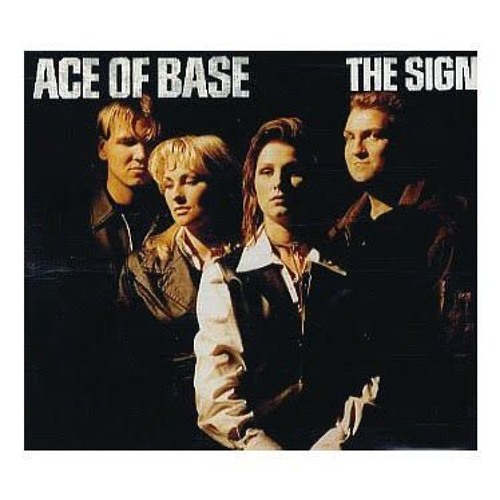 | The SignAce of Base |
Writer(s): Jonas “Joker” Berggren (see lyrics here) Released: December 21, 1993 First Charted: January 1, 1994 Peak: 16 US, 113 BA, 13 CB, 13 GR, 19 RR, 2 AC, 2 UK, 15 CN, 14 AU, 14 DF (Click for codes to charts.) Sales (in millions): 1.1 US, 0.4 UK, 2.15 world (includes US + UK) Airplay/Streaming (in millions): 3.0 radio, 125.40 video, 241.07 streaming |
Awards:Click on award for more details. |
About the Song:Ace of Base hit #1 on four U.S. pop charts with “The Sign.” On February 11, 1994, they reached the pinnacle on the Radio & Records chart and followed suit a week later on the Gavin Report. On March 12, the song ascended to the throne on the Billboard Hot 100 and accomplished the same feat on the Cashbox charts a week later. The song also spent thirteen weeks at #1 on the Billboard radio airplay chart. It ended up the song of the year on Billboard’s year-end chart. Idolator ranked it the best pop song of 1994. WK The song experienced international success as well, going to the top slot in Australia, Canada, Denmark, Finland, Germany, Israel, Spain, New Zealand, and Zimbabwe. WK Interestingly, the Swedish group did not top the Swedish charts or the UK charts, stalling at #2 in both cases. “The Sign” “featured a disco-esque beat and harmonies reminiscent of the earlier Swedish pop sensation, Abba,” DJ another group comprised of two female singers alongside two male musicians. However, a People magazine reviewer said that “The Sign” proved Ace of Base was more than just an Abba clone. WK Their debut album, Happy Nation, came out in 1992 but American labels weren’t interested until iconic record executive Clive Davis heard “All That She Wants” while on a yacht on vacation. That song was the group’s first single released outside of Scandinavia FB and went to #1 in multiple countries and reached #2 in the United States. Davis signed the band and revamped the album with three new songs, including “The Sign,” and a new album title – also The Sign. TB The album sold nine million copies in the United States. “The Sign” is about “a couple contemplating the state of their relationship and deciding to split up as a result.” WK As singer Jenny Berggren said, “You see signs in your life, and that’s why you change direction.” WK Musically, “the song has a simple, memorable, endlessly catchy chorus.” TB It “sounded like some streamlined, futuristic version of pop music.” TB Resources:
Related Links:First posted 8/11/2023. |









